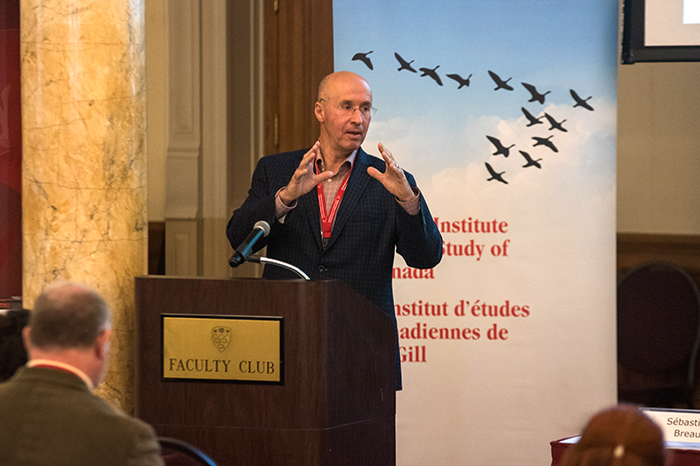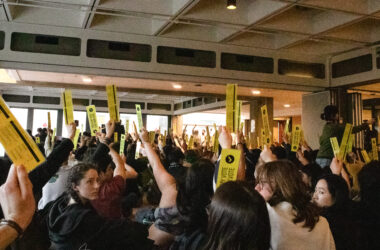To mark the 100th anniversary of Canada’s income tax, the McGill Institute for the Study of Canada (MISC) held its annual “Who Pays for Canada? Taxes & Fairness” conference on Feb. 22 and 23. A series of panels covered the philosophy of taxes, ways to fairly distribute tax revenue across society, and the evolution of Canadian tax policy.
Canada’s departure from distributive justice
Daniel Weinstock, a professor in the Faculty of Law and Department of Philosophy, opened the “Philosophies of Fairness” panel. The main topic was Rawls’ social science theory of distributive justice, which presents taxes as a way to give resources to those who need them the most. Weinstock finds that this concept oversimplifies the idea of taxation and fails to account for the different methods of taxation such as income tax and consumption tax.
“There are fairness issues that are at play [in] how we decide to orient institutions of taxation,” Weinstock said. “The principles theorists of distributive justice have come up with really don’t descend down to the level of giving us tools to think about those kinds of decisions.”
However, Weinstock emphasized that Rawls’ distributive justice is still constructive because it upholds the idea of reflective equilibrium, which means that a solution should reflect the different reactions to a particular situation, rather than a unilateral decision. Overall, Weinstock feels that Canada’s tax system should be adaptable to the complexities of reality, something that he feels the distributive justice theory fails to do.
Panellist Vida Panitch, the director of the Doctoral Program in Ethics and Public Affairs at Carleton University, introduced the notion of the government regularly giving every citizen a sum of money as a “basic income,” and whether this can achieve her two aims of fairness: Autonomy to choose when to work and decommodification—in other words, providing citizens with wealth that inherently belongs to them rather than being something they worked for. Thus, in practice, Panitch hopes for a high enough level of basic income to enable people’s liberty and whether it is broadly applicable enough to replace public goods, such as health coverage.
“If it is not high enough to offer a genuine alternative to labour force participation, if it is not high enough to mean that you have to work, then it looks like it is not going to be all that consistent associated with the economy and decommodification,” Panitch said.
One Hundred Years of Canadian Tax Policy
Robert Raizenne, a practicing tax lawyer, argued that there has been a significant continuity in how Canada’s income tax has been structured in the past one hundred years and that nothing has changed since 1917. Raizenne explained that perfecting the tax system will always be a challenge.
“After 100 years, lots has changed, in the sense that all we hear about is [reforming] the tax system,” Raizenne said. “However on the other hand, nothing has changed. If we look at the foundational principles, we see that there is a lot that has stayed the same.”
Shirley Tillotson, a professor at the University of King’s College, was more convinced that Canadian tax policy changes over time and responds to current events.
“Studying tax history has certainly convinced me that there is no golden age of Canadian tax politics,” Tillotson said. “[History] does actually provide us with a sense of the particular tendencies that take these general problems and convert them into quite normal political circumstances.”
Jack Mintz, president’s fellow of the School of Public Policy at the University of Calgary, considered lessons from Canada’s history and concluded the discussion by explaining three objectives in tax policies: Minimizing economic inequalities, achieving the best use of resources, and ensuring equity.
“Fairness isn’t the only objective in looking at taxes,” Mintz said. “There are other objectives.”









